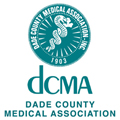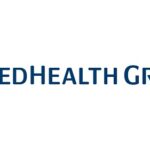 The Jim Moran Heart and Vascular Research Institute at Holy Cross Hospital in Fort Lauderdale is one of 10 hospitals across the nation identified by CMS to participate in the American College of Cardiology Smarter Management and Resource Use for Today’s Complex Care Delivery (SMARTCare) Program. It recently has been identified as a key leader and asked to assist other sites with onboarding.
The Jim Moran Heart and Vascular Research Institute at Holy Cross Hospital in Fort Lauderdale is one of 10 hospitals across the nation identified by CMS to participate in the American College of Cardiology Smarter Management and Resource Use for Today’s Complex Care Delivery (SMARTCare) Program. It recently has been identified as a key leader and asked to assist other sites with onboarding.A physician-driven quality improvement project developed by the American College of Cardiology and its chapters in Wisconsin and here in Florida, SMARTCare is made possible by a $15. 8 million grant from the Center for Medicare and Medicaid Innovation. The SMARTCare model is expected to save participating sites $42. 2 million over the three-year pilot program, while also improving the decision-making process to benefit patients.
The study represents a new, more patient-centric approach to diagnose and treat known or suspected stable ischemic heart disease. Participation is voluntary and there is no additional cost to the patient, nor is there a payment for participation.
Using SMARTCare, which brings together five decision-making tools, physicians access appropriate use criteria and other resources based on the patient’s history and symptoms. These tools include individualized patient cardiac risk profiles and electronic databases that allow the physician to readily access related treatment information at the right time.
Through the use of several software tools, specific patient data is extracted from electronic medical records and filtered to fill study specific values that can allow physicians opportunities to provide better patient care.
In conjunction with the research department at Holy Cross Hospital, the pilot group at Holy Cross Medical Group Cardiology Associates committed to this endeavor and underwent training in the new software utilization, as well as training in the appropriate patient selection for this federal study. Prior to the program launch, members of the American College of Cardiology visited the hospital and confirmed its readiness to begin enrolling patients.
The Research Institute at Holy Cross is among the first two sites to implement SMARTCare and, to date, the only site to successfully implement the specialized software tool called IndiGO. This interactive tool: (1) calculates individual risks of chronic conditions based on rich set of approximately 70 elements of individual health data; (2) calculates impacts of preventive interventions on those risks; and (3) presents this information to physician and patient in visual form.
This has the potential use to:
• improve patient engagement and adherence;
• prioritize the preventive interventions that will have the most quality of life impact;
• prioritize the interventions for each patient;
• prioritize patients; and
• identify high-risk patients that would benefit from prevention but do not qualify under standard guidelines.
The SMARTCare tools are designed to further empower patients to become actively involved in the management of their care. The IndiGO tool generates a benefit score that predicts the quality-of-life improvement for the patient five years from now if the patient complies with intervention (on scale of zero to 1000). A score of 10 means the patient is one percent more likely to be alive or has equivalent improvement in quality of life.
While there are many challenges in aligning the software tools with the electronic medical record data, there are emerging signs that this initiative will be successful in changing behavior to help improve patient outcomes.
To date, there are nearly 500 patients enrolled in the study and there are 10 cardiology physicians participating in their practices. The goal is to grow this to all Holy Cross Hospital cardiology practices.
It is hoped our participation in this study will make an important contribution that will be utilized to inform and make national healthcare policy as part of the overarching population health model, shifting patients from seeing physicians only when they are sick to helping them stay well and out of the hospital.


























